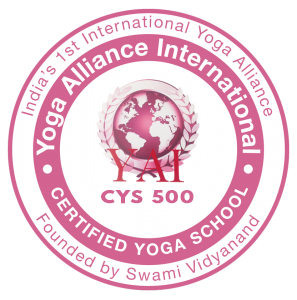Information


7 food mistakes we can make according to Ayurveda.
Ayurveda is a beautiful life science that provides us with so much knowledge on different practices to maintain a healthy and balanced lifestyle. The main aim of Ayurveda is give us the tools and practices to live in harmony with nature’s cycles, eating wholesome foods and implementing daily wellness habits for disease prevention based on our primary Ayurvedic body constitution/dosha.
Here are some mistakes concerning food intake according to Ayurveda.
There is a section in Ayurveda highlighting foods that are incompatible. This means they should not be mixed together, both in preparation and in eating together. Such incompatibilities mentioned are animal milk (usually of cow) with non-vegetarian items such as meat, fish, eggs etc; yoghurt and fruits (does not apply for plant based yoghurt); honey and hot water; milk with fruits especially citrus fruits (plant based milk does not apply here). These according to Ayurveda should not be mixed together because they are too difficult to digest, and in some cases, due to improper digestion, they can turn into toxins in the body.
In Ayurveda, it is best advised to drink water before taking food, not during or after eating. This is because if we do so immediately after we have a meal, it interferes the digestive process by putting the agni/digestive fire out. It’s described as the action of throwing water on a fire. Some practitioners however advise that it is ok to drink warm water during the meal. Traditionally it is said not to and from my personal experience, I find that it’s better to focus on the food only when eating and after about 45minutes to drink warm water.
Similar to the principle above, Ayurveda advises not to take a shower, bath or going swimming immediately after having any food. This is because the element of water will create a heavy sensation for the body and it will interfere with the digestive process. It is better to wait for about 1-2hours to give the body enough time to properly process the food.
According to Ayurveda, we should only eat when we are hungry. Hunger is an indication from the body that the last meal we had has been digested and the body now needs more fuel. Due to our lifestyle and work schedules these days, we usually have a specific time for meals/break times and plan our meals according to that. But if we have not digested the food we ate before, then adding more food will put too much pressure on the body and the digestive organs, and it can even turn into toxins in the body by not digesting properly. Some people have a faster/stronger agni, some lower. Get to know yours. When there is hunger in the body, a common sign is by the rumbling of the tummy or a burning sensation in the stomach.
These days, we are used to have our biggest meal at dinner time because this is the time we have free to sit down properly and eat. But according to Ayurveda, the biggest meal should be taken at lunch time (between midday and 1pm) when the agni is the strongest. It also gives us enough time throughout the day to digest the food properly. At night time, the meal should be the lightest, warm and easily digestible food and ideally eaten at 6-7pm.
As a general rule in Ayurveda, once we have eaten, it is helpful to go for a slower pace walk to create some gentle movement in the body. If we go to sleep or rest/lie down soon after eating, this creates sluggishness in the body which slows down the digestion process. Dynamic activity such as running, fast walking or working out is also not indicated straight after finishing a meal because this also creates confusion for the body, due to the main differences of functioning between the sympathetic and parasympathetic nervous systems. So a steady pace 10-15minute walk in indicated.
The functional system of Ayurveda is based on the three doshas, Vata, Pita and Kapha which we all have in our body, but in different percentages. It’s important to know our individual constitution so that we can eat according to the respective dosha and maintain balance. If for example you have primary Vata dosha (air and space) and eat lots of dry, crispy, fried, raw and cooling foods, this increases the Vata therefore bringing the body into a state of imbalance. If you have more of Pita dosha (fire element) and eat spicy, warming quality foods, then Pita will increase and create imbalance. If you have more of Kapha dosha (earth and water) and eat heavy, oily, cooling, raw, moist type foods, then Kapha will aggravate and create imbalance. So the best way is to get to know our primary body constitution and take meals which keeps it in balance. Each dosha also has specific tastes which can keep it in or take it out of balance. I will share another post on these soon.
The best way to understand these concepts is through personal experience. This is the beauty of both yoga and Ayurveda. When we experience the teachings and practices, we can see the results from direct cognition. And this is one of the ways of pramana, right knowledge.